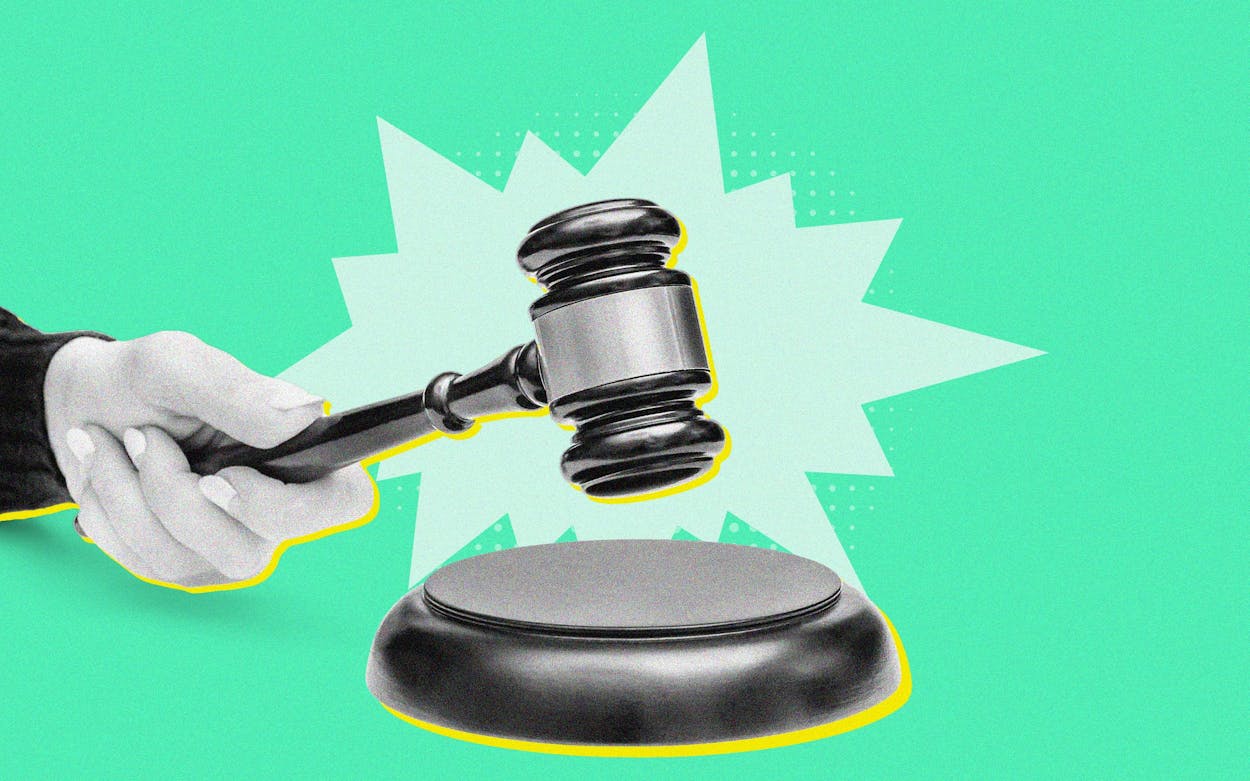What’s going on?
Third Planet Sci-Fi Superstore, a comic book store in Houston, filed a lawsuit against the nearby Crowne Plaza River Oaks, claiming that the hotel’s guests keep throwing objects such as fire extinguishers and dishes from balconies onto the store’s roof, necessitating costly repairs. But the weird part is what the pleading from the store looks like.
Okay, I’ll bite. What does it look like?
See for yourself, courtesy of the Houston Chronicle, which first reported the story (scroll down to page six):
They filed the lawsuit as … a comic book?
Sure enough. Artists Michael Charles, Maurice Terry Jr., Michael Brooks, and Benjamin Carbonero of Bad Cog Studios illustrated the 24-page comic at the request of Third Planet owner T.J. Johnson and his attorney, Cris Feldman. “I was really intrigued by it because, first of all, I got a lawyer calling me to do a creative project,” Charles told the Chronicle. The full-color comic shows the store staff fending off an onslaught of ceramic plates, lit cigarette butts that they allege have twice caused fires, and no fewer than fourteen fire extinguishers tossed from hotel balconies onto the store’s roof. One panel depicts store employees using buckets to collect water as rain leaks through the damaged roof onto the shelves.
Is this legal?
It is, in fact! It’s unconventional, but the law doesn’t require that pleadings in civil cases be black-and-white typed documents formatted in any particular way. Still, there are good reasons why most lawsuits look the same: one judge might be amused by an unusual pleading, while another may consider it beneath the dignity of the court; a gimmicky pleading might undermine the gravity of the case; and, of course, not every suit lends itself to creative storytelling. The pleading from Third Planet is a unique case. It’s a third amended petition, which means that the parties involved are already in the middle of the legal process. The store and its attorneys know who the judge reviewing the claim is, and whether he’s the sort to hold this gimmick against them. Also, according to the pleading, lawyers for the defendant claimed that they didn’t understand the previous petition, which meant that filing it as an easy-to-comprehend comic book fits the time-honored legal tradition of being snarky to opposing counsel.
Are there other examples of this kind of pleading?
We couldn’t find any, and when we asked Daryl Moore—a former Harris County judge who’s now in private practice—he said he never saw anything this creative on his docket. Sometimes a plaintiff would include photos, especially in a personal injury lawsuit, but that was about the extent of it. Of course, he noted, Third Planet is a comic book store, so representing its case in this format makes a sort of intuitive sense.
Is it fair for the comic book store owners to portray themselves as the heroes and the hotel as villains? Is a hotel responsible for what its guests may or may not throw onto a neighboring business’s roof?
Great questions! It’s not unheard-of for hotels to be sued for the behavior of their guests. In January 2020, a San Antonio hotel was sued after a guest tossed a ketchup bottle off a balcony onto the River Walk, where, according to the plaintiff, it struck and injured a two-year-old boy. In 2017, Harris County sued a hotel in Spring for failing to abate criminal activity by its guests.
That said, all we have here is the pleading filed by one side, which the lawyers (and writers and artists) have presented in as persuasive a manner as possible. No response has yet been filed by the hotel (and its management didn’t respond to Texas Monthly‘s request for an interview), so we have only one side of the story so far. We’ll refrain from forming an opinion on the merits of the case, and just note that this type of dispute is not unprecedented and that many plaintiffs want to portray themselves as little guys standing up against an unfair system. The rest is up to the court to decide.
- More About:
- Houston








